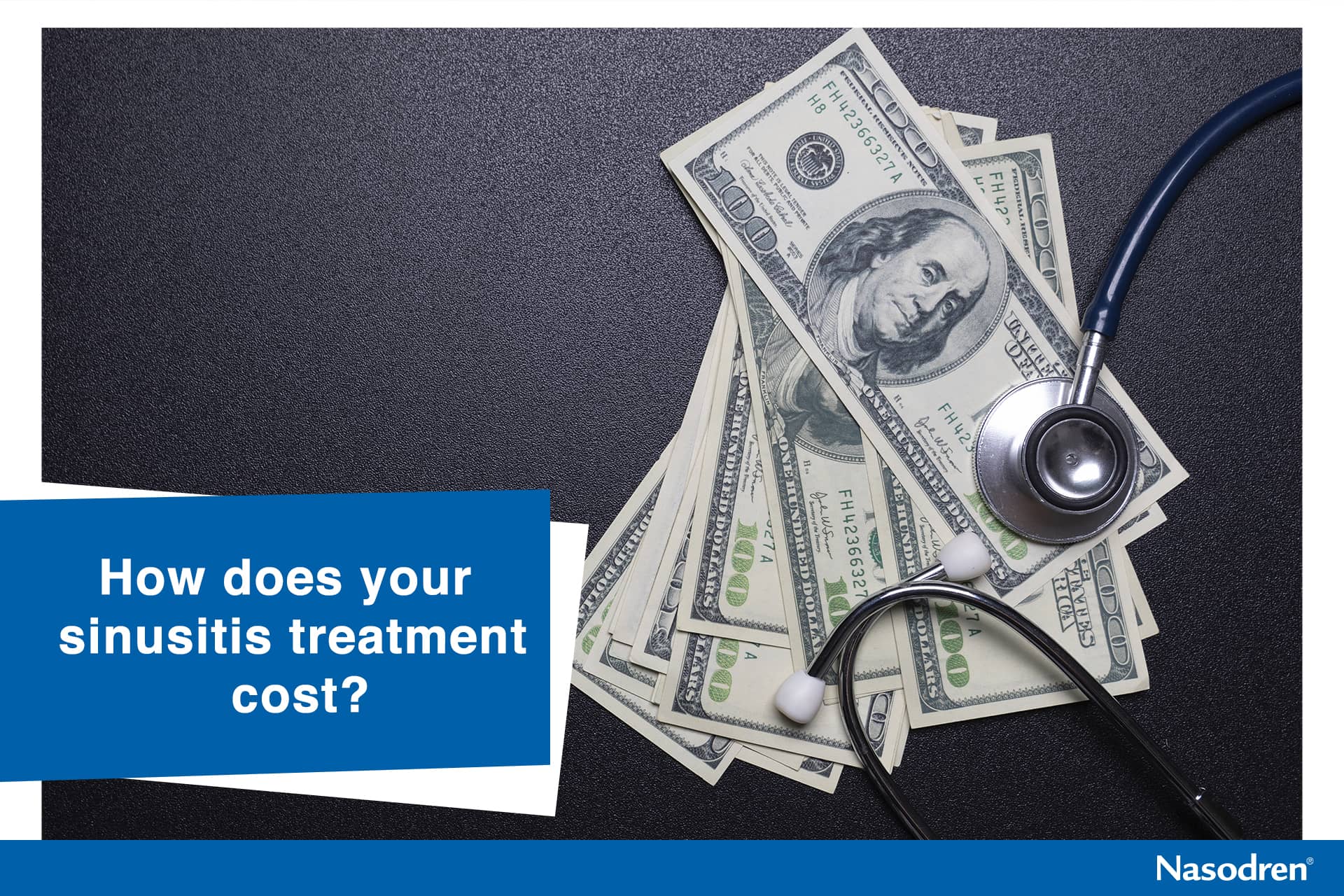It is now accepted that sinusitis is a common disease and, therefore, has a considerable impact on general public health and financial resources, both in terms of the costs caused directly by the disease and those caused by the patient’s labor productivity.
That being said, how much do you think an episode of sinusitis costs on average? Probably a lot more than you think, so let’s find out!
The data speaks for itself. The first studies aimed at finding out the cost of sinusitis in the United States reported, 20 years ago, that it was 3.39 billion dollars annually. This figure included both the direct cost (visits, tests, medication, etc.) and the indirect cost (no or low patient labor productivity).
Different studies worldwide have also evaluated these costs, which impact the individual economy or the health system depending on each country’s health policy.
For example, a study from 2011 led by Neil Bhattacharyya, ENT at Brigham and Women’s Hospital (Boston), showed that patients needing an ongoing treatment due to chronic sinusitis spent thousands of dollars over the course of time depending on their situation. For instance, among patients with chronic sinusitis, 39% were still under some sort of treatment after 12 months, while almost 28% were consuming care after 24 months.
The patient care costs averaged 2.449 dollars among those who needed or were about to undergo endoscopic sinus surgery (ESS). The costs related to the procedure, including surgical debridement and medical therapy, averaged 7.726 dollars, and it wasn’t until the first and the second year following surgery that therapy costs dropped significantly.
In Europe, things don’t get much better. A pharmaeconomic analysis carried out in Spain and published in The Laryngoscope in 2013 showed that the monotherapy cost of acute rhinosinusitis averaged 682 euros, including direct costs (for instance, drug costs) and indirect costs (work absenteeism and poorer work performance, among other factors). Those who chose a two-drug treatment ended up paying an average of 628 euros, whereas patients taking three or more drugs spent around 650 euros.
Reducing these costs involves the prevention of sinusitis, an early diagnosis, and effective treatment that allows the reduction of direct and indirect costs, that is, accelerates the healing time and reduces sick leave.






